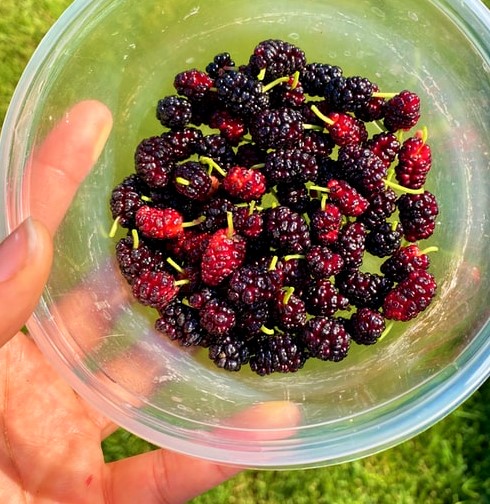What is Resveratrol?
Resveratrol is a natural compound and is naturally produced in plants as a response to injuries or stresses, such as disease or irradiation with ultraviolet light. It is found in red grapes, peanuts, berries, spruce, mulberries and dried roots of Polygonum cuspidatum (Japanese knotweed).

Resveratrol is known as a polyphenolic compound which is a large-sized protein found in plants. Polyphenols are described as antioxidants that help neutralize harmful free radicals in our bodies. How well a polyphenol works in our bodies depends on individual metabolism, intestinal absorption, and the bioavailability of the polyphenol. A study of the bioavailability of resveratrol 500 mg tablets in humans found levels in the blood after taking resveratrol were adequate to promote the beneficial pharmacological activities of resveratrol(1).
What can it do?
This compound has several beneficial effects due to its antioxidant, anti-inflammatory, anticarcinogenic, antidiabetic, cardioprotective, estrogenic and anti-aging properties. Resveratrol can suppress cancer cells including lymphoid and myeloid cancers; multiple myeloma; cancers of the breast, prostate, stomach, colon, pancreas, and thyroid; melanoma; head and neck squamous cell carcinoma; ovarian carcinoma; and cervical carcinoma(2).
An example of how resveratrol suppresses cancer growth.
Resveratrol inhibits the cell communication pathway known as STAT3, in some breast cancer cell lines and prostate cell lines. STAT3 is a type of signalling pathway (complex communication system that governs basic cellular activities and coordinates cell action).
The body has a normal process of detecting and then killing unhealthy cells. This process is known as apoptosis and prevents these sick cells from becoming cancerous ones. Some signalling/communication pathways interfere with this process. For instance, human cancers can be initiated, and sick cell growth can hijack the STAT3 protein family. This is done by signalling in the STAT3 pathway allowing these unhealthy cells, such as DNA damaged cells to continue living in the body when they otherwise would die.
From Apoptosis in cancer: from pathogenesis to treatment by Dr Rebecca Wong (3)
Apoptosis is an ordered and orchestrated cellular process that occurs in physiological and pathological conditions. It is also one of the most studied topics among cell biologists. An understanding of the underlying mechanism of apoptosis is important as it plays a pivotal role in the pathogenesis of many diseases. In some, the problem is due to too much apoptosis, such as in the case of degenerative diseases while in others, too little apoptosis is the culprit. Cancer is one of the scenarios where too little apoptosis occurs, resulting in malignant cells that will not die. The mechanism of apoptosis is complex and involves many pathways. Defects can occur at any point along these pathways, leading to malignant transformation of the affected cells, tumour metastasis and resistance to anticancer drugs.
The falling leaves from trees of Autumn is another way to visualise apoptosis as the word translated from the Greek language, means “dropping off”.

Which cancers does Resveratrol suppress via STAT3 pathway?
Suppression of STAT3 results in correct “dropping off” apoptosis of tumour cells (4). A human clinical trial of a STAT3 inhibitor shows it works against advanced tumours (5). Resveratrol inhibits STAT3 signalling and induces apoptosis of malignant cells containing active STAT3 protein (6).
Resveratrol suppresses STAT3 in many types of cancers in vivo and in vitro. (In vivo and in vitro are terms for preclinical methods of research, carried out with animal models or in the petri dish. These studies are usually done before human clinical trials). For example, Resveratrol suppresses the growth and metastatic potential of cervical cancer by inhibiting STAT3in vivo and in vitro (7). Preclinical studies of breast and prostate also show Resveratrol inhibits STAT3 (6).
Is this natural compound right for you?
Cancers use multiple biochemical pathways to grow. Different cancer types use different pathways. The STAT3 suppression mechanism is just one way that resveratrol positively acts against cancer growth. There are other mechanisms that this natural compound uses to curb cancer growth. For instance, resveratrol is found to be a potent complement to mTOR pathway inhibitors in diseases affected by over activity of mTOR (8). If your type of cancer uses the mTOR pathway then resveratrol may be beneficial to reducing your cancer growth. It takes some research to discover which natural compounds are most likely to be effective for a particular type of cancer.
My colleague and I developed a method of finding the pathways that your cancer uses and then potentially suppressing those pathways with natural compounds (9). This is known as SCANS Suppression-centric anticancer natural strategy and is based on the concept of military Network-Centric Warfare. It is published as Open Access and is free to download. This research paper outlines how to find potentially beneficial natural compounds for Triple negative breast cancer using SCANS. As a more user-friendly way to find compounds for the average person, I also created an Online Course (Starter Course). This is designed to take you through the steps and shortcuts on how to choose natural compounds for your cancer type with modules in safety included.
With any natural compound you decide might be beneficial, it is worth finding out if there are possible interactions with any medical treatments and pharmaceutical drugs you might be taking.
Notes:
Resveratrol is also known as 3,5,4’-trihydroxystilbene and is a phenol, phytoalexin and stilbenoid.
STAT3 = Signal Transducer and Activator of Transcription
mTOR = mammalian Target of Rapamycin
References
1. Sergides C, Chirilă M, Silvestro L, Pitta D, Pittas A. Bioavailability and safety study of resveratrol 500 mg tablets in healthy male and female volunteers. Exp Ther Med. 2016;11(1):164-170.
2. Aggarwal BB, Bhardwaj A, Aggarwal RS, Seeram NP, Shishodia S, Takada Y. Role of resveratrol in prevention and therapy of cancer: preclinical and clinical studies. Anticancer Res. 2004;24(5a):2783-2840.
3. Wong RSY. Apoptosis in cancer: from pathogenesis to treatment. Journal of experimental & clinical cancer research : CR. 2011;30(1):87-87.
4. Siveen KS, Sikka S, Surana R, et al. Targeting the STAT3 signaling pathway in cancer: Role of synthetic and natural inhibitors. Biochimica et Biophysica Acta (BBA) – Reviews on Cancer. 2014;1845(2):136-154.
5. Tolcher A, Flaherty K, Shapiro GI, et al. A First-in-Human Phase I Study of OPB-111077, a Small-Molecule STAT3 and Oxidative Phosphorylation Inhibitor, in Patients with Advanced Cancers. Oncologist. 2018;23(6):658-e672.
6. Kotha A, Sekharam M, Cilenti L, et al. Resveratrol inhibits Src and Stat3 signaling and induces the apoptosis of malignant cells containing activated Stat3 protein. Mol Cancer Ther. 2006;5(3):621-629.
7. Sun X, Xu Q, Zeng L, et al. Resveratrol suppresses the growth and metastatic potential of cervical cancer by inhibiting STAT3(Tyr705) phosphorylation. Cancer Med. 2020;9(22):8685-8700.
8. Alayev A, Berger SM, Holz MK. Resveratrol as a novel treatment for diseases with mTOR pathway hyperactivation. Ann N Y Acad Sci. 2015;1348(1):116-123.
9. Webb MJ, Kukard C. A Review of Natural Therapies Potentially Relevant in Triple Negative Breast Cancer Aimed at Targeting Cancer Cell Vulnerabilities. Integr Cancer Ther. 2020;19:1534735420975861.

